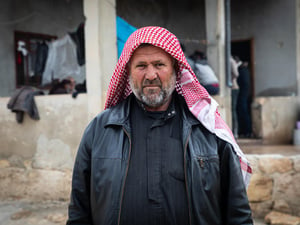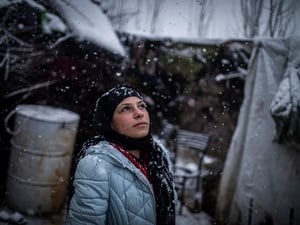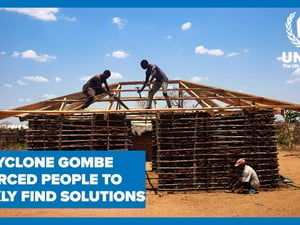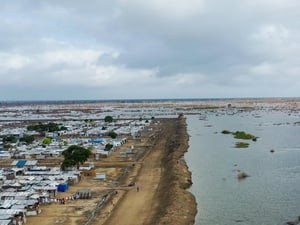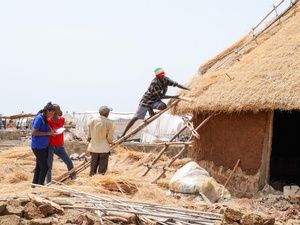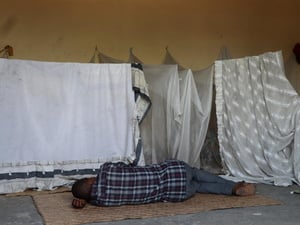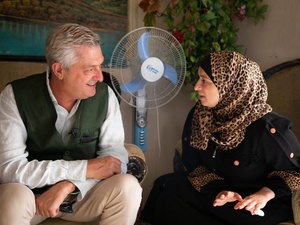UNHCR completes Kyrgyzstan shelter programme in time for winter
UNHCR completes Kyrgyzstan shelter programme in time for winter

One of the new homes in southern Kyrgyzstan takes shape.
BISHKEK, Kyrgyzstan, December 3 (UNHCR) - The UN refugee agency has wrapped up its emergency shelter programme in southern Kyrgyzstan after providing temporary homes for the more than 13,400 people whose houses were damaged or destroyed during June's violence there.
Getting people into proper accommodation before winter has been an important goal. June's violence cost the lives of more than 400 people and displaced 375,000 others, many of them briefly into neighbouring Uzbekistan.
"Now that this emergency shelter work is completed, our focus will shift to reconciliation, in particular promoting rule of law and human rights. The situation in this part of Kyrgyzstan remains fragile," a UNHCR spokesman said.
In all, some 2,000 homes have been repaired or rebuilt over the past 100 days, of which almost 1,700 were completely destroyed. Early completion of this programme has been important and owes much to the commitment and coordination between UNHCR and its partners as well as the support of the Kyrgyz authorities.
UNHCR itself constructed four out of every five of these transitional homes. With shelters built and people now moved in, the refugee agency will continue helping with the restoration of documents and housing, land and property rights.
The response from the beneficiaries has been enthusiastic. With winter starting, nighttime temperatures in southern Kyrgyzstan are around freezing and forecast to drop to minus 10 degrees Celsius over the next few days. "People have told us they did not expect to have a roof over their heads before winter, and only a few months ago there was talk of people seeking to leave the country," the UNHCR spokesman said.
All of the transitional homes are warm and seismically safe. They have been built on the foundations of destroyed properties. Constructing emergency transitional shelters has cost UNHCR more than US$9 million, from a total budget in Kyrgyzstan for 2010 of US$23 million.
Needs for 2011 are estimated at US$11.4 million. Most of the funds will go towards ensuring better access to rights, basic and essential services, the replacing of personal documents and promoting livelihoods.
By Natalia Prokopchuk in Bishkek, Kyrgyzstan


